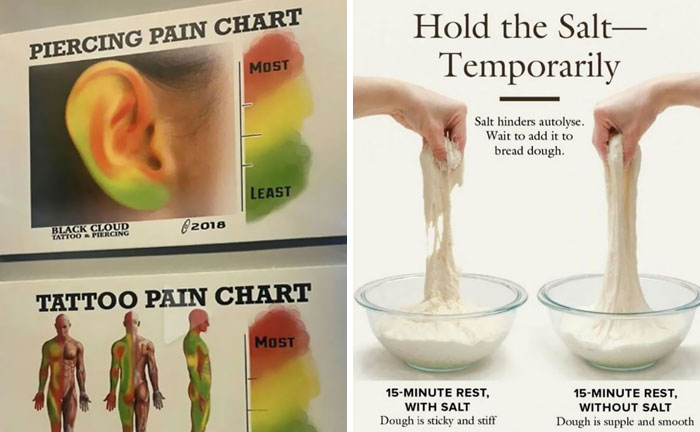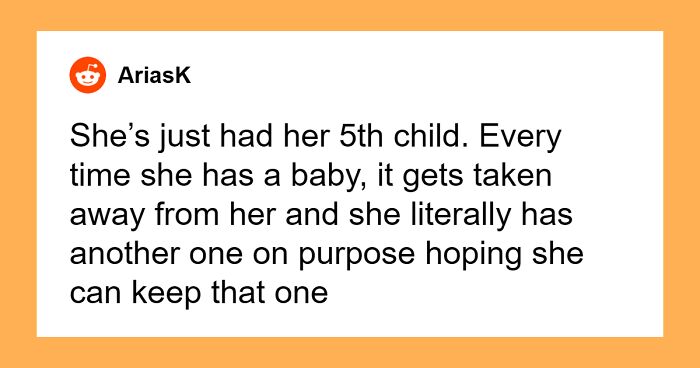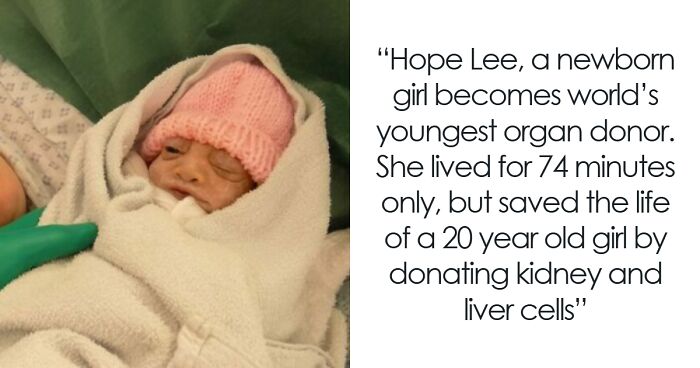As kids, most of us wished to have a twin at least once in our lives. Inspired by all the books and movies that featured twins, we would imagine what it would be like to not simply have a sibling and a good friend, but one that looked exactly like us. I personally had tons of mischief planned in case a long-lost twin of mine appeared out of nowhere (and that was before my favorite Weasley twins were even created!).
Twins are, in fact, a fascinating phenomenon nature gifted us with. Having twins can be both fun and challenging. Fraternal twins mean that the babies were developed from two different eggs inside the mom’s body. And while usually they bear a little more resemblance than regular siblings, it is still possible to tell them apart (especially since they can actually be of different genders). However, there is no such thing as maternal twins. Instead, we have identical twins, resulting from an egg splitting in two: same gender and very, very similar. I mean, it’s right there in the name.
In recent years, the U.S. Centers for Disease Control and Prevention reported an unbelievable surge in the twin birth rate. This means that the chance of twins being born into a family is a whopping 70% higher these days than it was 30 years ago.
If you want to learn more interesting facts about twins, keep reading the article. We collected lots of twosome facts: from the so-called “twin gene” to “twin capital,” and even how to get pregnant with twins (spoiler: some sources claim certain diets help).
And if you are a twin or know an awesome twin story, share it with us in the comments.
This post may include affiliate links.
Twins can have different fathers and belong to different races.
Yes, it sounds pretty inconceivable, but it still can happen. If a woman ovulates twice and releases two eggs, then copulates with two different men, both eggs can be fertilized. While this would require a very specific sequence of events, it is not entirely impossible.
This condition, scientifically called heteropaternal superfecundation, can also occur if an in vitro fertilization goes wrong. Dutch parents Wilma and Willem Stuart experienced this when after the procedure, they gave birth to twin boys. The thing is, one of them was white, while the other was black. Later the Stuarts learned that before fertilization, Willem Stuart’s sperm was accidentally mixed with another man’s.
It doesn't even have to be two eggs released at the same time. Normally, when an egg is fertilised it sends out hormones saying, "No more eggs! I repeat, no more eggs. The womb is full." However, there have been times when the strength of the signal wasn't enough to cut egg release, and a second egg is released. The second egg can also be fertilised, and so twins can be born that were conceived a month apart.
If twins are separated at birth, scientists try to track them.
The “nature vs. nurture” debate is one of the strongest ones in genetics and psychology. Genetically, twins are as close to each other as can be, so how does growing up in completely different environments affect them? This is, however, not so easy to track, because twins are not separated all that often, and you can’t do it on purpose just for the sake of the study.
Fraternal twin sisters Meredith Grace Rittenhouse and Meredith Ellen Harrington were born in China and adopted by two different American families who were unaware of the existence of the other child. Meredith Ellen told her parents she wanted to have a sister because she felt very lonely when she was just two years old. When asked who she wanted to become when she grew up, Meredith Grace said she wanted to become a sister. Her father stumbled upon a photo of a little girl who resembled his daughter way too closely when he was searching for other parents who applied to the same adoption agency. When Meredith Ellen met Meredith Grace for the first time, she claimed they were born together.
me and my twin sister are separated. My birth mom was young and couldnt take care of both of us so she gave me to her sister and kept my twin... it sucks butt
They may look exactly the same, but the fingerprints of identical twins don’t match.
Twins can have their own language.
Have you ever seen two toddler siblings speaking to each other in what seems to be utter gibberish, yet somehow perfectly understanding each other? This is called idioglossia, a language that twins often develop between themselves.
Studies show that about 40% of twins develop a language of their own. If siblings who are not necessarily twins are very close, they could use each other as role models to pick up vocabulary and assign meaning to sounds, even if these sounds have no real meaning in their native language. “Twin speak” would disappear by the time children expand their real vocabulary and go to school, but there are cases where they retain it in subsequent years too.
More twins are born now than in previous decades.
Recent CDC research showed that the birth rate of twins has increased by as much as 76 percent compared to 1980. For example, in 2009, one in every 30 births was twins; in 1980, it was only one in every 53. According to the study’s authors, one of the main reasons for the twin boom is the fact that women began having kids later in life. And it is more likely you’ll become a mom to twins in your 30s than in your 20s. Another important factor is that reproductive treatments, which often result in twin pregnancies, are used more frequently.
The world’s oldest twins lived to be 104 years old.
Born in England in 1910, Ena Pugh and Lily Millward were named the oldest living twins by the Guinness World Records. Mrs. Pugh died at the age of 104, two days after her birthday.
Unfortunately, they lost the title when it was discovered that sisters Edith Ritchie and Evelyn Middleton from Scotland were 50 days older.
Twins can have an age difference between them.
When attempts to conceive naturally don’t yield any results, parents can turn to in vitro fertilization (the woman’s eggs are fertilized outside of her body and then placed back). To increase the chances of conceiving, it is a common practice to fertilize several eggs at once. Parents can choose to transplant all of the embryos, or have some of them frozen and transplant them years later. Though the kids will differ in age, genetically they will still be considered twins.
Another thing that can happen is twins being born around midnight. Huffington Post once posted an article about the Rosputni twins from Buffalo, New York, where Ronan was born at 11:37 p.m. on December 31, 2011, and his brother Rory was born at 12:10 a.m. on January 1, 2012. Though in reality they were born half an hour apart, technically they were born in different years!
Some of your favorite celebs have twin siblings.
Even if your twin brother or sister lives in the spotlight, you can still choose to continue a normal life. This is what Hunter Johansson, brother of Scarlett, Michael Kutcher, brother of Ashton, and Patricia Bundchen, sister of Gisele, decided to do. Some other celebrities that have non-celeb twin siblings include Alanis Morissette, Kiefer Sutherland, and Jon Heder. On the other hand, both Mary-Kate and Ashley Olsen made careers in film and fashion.
Less common twin varieties include “half identical twins,” when the egg splits before fertilization and then each half is fertilized separately, and mirror image twins, where identical twins develop asymmetrically.
Having twins can be stimulated by diet.
Good news for those who want to have twins and also like dairy products! A study showed that consuming dairy may increase the likelihood of having twins. Dairy products increase IGF levels 13 times. This protein stimulates the ovaries to be more responsive to the hormone that starts ovulation. Researchers presume that the growth hormone fed to cows could be the reason.
Taller women are more likely to have twins.
Some studies show that the level of insulin-like growth factor (IGF) is higher in taller women. This is a protein released by the liver that actually promotes growth in long bones’ shafts. But at the same time, higher levels of IGF cause ovaries to be more sensitive, and as a result, more likely to ovulate.
The twin gene is a real thing.
Hyperovulation is a phenomenon where a woman is more likely to release more than one egg during ovulation. This means there is a higher chance that more than one egg will be fertilized, producing fraternal twins. Hyperovulation is also genetic, so if anyone in your family had this gene (and a set of twins), it is likely that you will inherit it and have more twins. However, having identical twins solely depends on chance because this happens when one fertilized egg splits in two, and there is no gene associated with that process.
Twin bonds form before birth.
No wonder twins have a stronger bond than any other family members — they spent nine months together in mom’s belly! Researchers observed five sets of twins through 3D ultrasound and discovered that at 14 weeks old, which is very early in a pregnancy, twins started reaching out to each other, touching heads and arms. They stayed in physical contact for about 30% of the time, and once they reached 18 weeks, contact became more frequent.
Say two sets of identical twins married each other...
Although officially cousins, their offspring would be just as genetically related to each other as true siblings.
Mothers who carry twins normally have more morning sickness. This happens due to the increased amounts of the hormone human chorionic gonadotropin (HCG).
The twin capital of the world is in Brazil.
That’s not an official title of course, but between 1959 and 2008, an incredible 8% of births in the village of Cândido Godói were twins. To compare, it was less than 1% in the rest of the country. Initially, it was believed that the local water source was the reason, but Brazilian geneticists recently disproved this belief. They discovered that the hyperovulation gene was very commonly found in local women, causing high rates of twin births.
There’s also a city called Twinsburg in the United States and the city holds annual competitions for twins!
Researchers from the University of Utah made an interesting discovery that mothers of twins often live longer than other parents. They came to this conclusion after studying the birth records of over 59,000 women in the period of 1800-1970.
Identical but not exactly.
Identical twins come from the same egg and are often difficult to distinguish from one another, as they look like exact replicas of one another. Scientists still don’t have an answer as to why it is sometimes practically impossible to tell identical twins apart.
An article in Live Science reported about a new study that shows that different eating habits, chemical exposure, and other similar environmental influences, known as epigenetic impacts, prompt more distinctions between identical twins as they age.
My cousin had twins so identical at birth that temporary tattoo was placed on one twins foot to identify him from his brother.
There are more lefties among twins.
Twins have approximately twice as many left-handed individuals among them compared to other people. That’s about every one in five pairs.
Twins Day is celebrated in Twinsburg, Ohio every year.
Every year, August's first full weekend is known as Twins Days Weekend. Twinsburg, Ohio's Twins Day Festival will cause them to see double. According to the Guinness Book of World Records, it is the "Largest Annual Gathering of Twins in the World."
The New York Times once published an article that stated that conjoined twins have a “neural bridge.” This allows them to literally read each other’s minds.
A lot of parents like to dress their identical twins in the same clothes and give them the same haircuts. People also often forget that identical twins have distinct personalities. Writer Grace Lin wrote the book Ling and Ting: Not Exactly the Same, which told the story of identical twins with completely different personalities, and even different haircuts.
Twins can affect each other’s sleeping cycles.
As babies, if one of them wakes up at night and cries for the parent, the other one will wake up and join them. While this might happen to any two babies sleeping in the same room, when twins get older, if one of them is awake, the other one is also very unlikely to go to bed.
From 1980 to 2009, the twin birth rate in the United States increased by 76%, from 18.9 to 33.3 per 1,000 live births.
Of course it did. All of the twins are having kids which produces more twins. *shrug*
Of course, twins are not born simultaneously. One is always delivered before the other, and the typical interval between the deliveries is around 17 minutes. Sometimes it might take even longer, and if it happens around midnight, longer intervals might cause the twins to be technically born on different days.
One trick to distinguish identical twins is by looking at their belly buttons. These are essentially scars left in the place where the umbilical cord connected the baby to the mother, and they don’t have anything to do with genetics. The only problem here is that people might find it highly inappropriate if you ask them to show you their belly button for identification purposes.
I’m a tad confused - is this saying that identical twins will have different belly buttons? XD it seems obvious that they would - twins have different fingerprints, after all. They’re genetically identical, not physically identical.
You can eat your twin.
Vanishing Twin Syndrome. The term "vanishing twin syndrome" refers to a situation in which one of a set of twins or multiple embryos dies in utero, vanishes, or is reabsorbed totally or partially, leading to the spontaneous reduction of a multi-fetus pregnancy to a singleton pregnancy.
Polar bears most commonly birth twins.
Mothers can have a litter of one or three, although twins are the most common birth type.
For animals that can have multiples in their litters, I’ve always thought it a bit silly that we call two-baby litters “twins” XD I know it’s technically true, but when I see someone see a cat mom with two babies and they go “Aww, TWINS!” my brain says “no… that’s just a cat who had two kittens in her litter” XD my brain is a curmudgeon sometimes.
Raising twins is easier than raising two siblings.
Sure, it’s twice as much labor while they are infants: you have to feed both and change two diapers. But on the bright side, they have the same sleep pattern, which means you get a little more free time, unlike parents who have, for example, a toddler of 2 years old and an infant of several months. As they grow older, even if they develop different interests, most age-appropriate educational programs will still be the same for both.
The Obstetrics & Gynecology journal once published a study that stated that parents of twins divorce somewhat more often than parents without twins.
The highest rate of multiple births is in Nigeria.
As of 2008, about 4% of births in Nigeria are twins, compared to 1.1% in China, one of the lowest rates (as of 2011). With a nationwide rate of roughly 3%, Massachusetts has the highest rate of twin births within the US (4.5 per 100 live births).
One of the methods doctors use to identify twin pregnancies is to listen for two heartbeats with a stethoscope.
Putting on weight during pregnancy is practically inevitable. Women that carry one child normally gain an additional 25-35 pounds (11-16 kg). But if you carry twins? Get ready to put on anywhere from 35 to 45 pounds (16-20 kg)!

 Dark Mode
Dark Mode 

 No fees, cancel anytime
No fees, cancel anytime 




















































